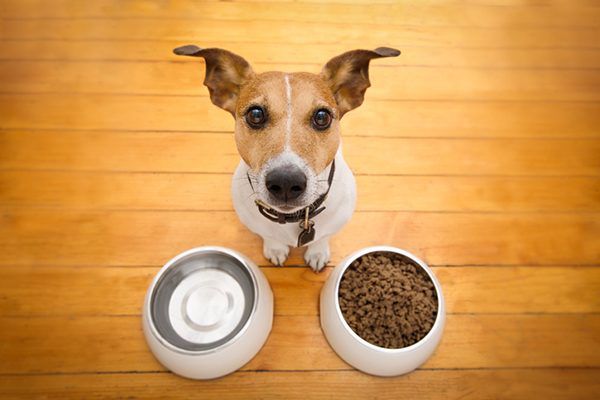Dogs are domestic animals with wolves’ recent wild ancestors. This means they are descended from creatures that have been subjected to particular evolutionary pressures, which have a significant impact on their dietary habits. It’s possible that your dog is reacting to external factors that lead him to eat excessively. This could be related to increased stress or other mental health issues, or they could experience symptoms of a disease that induces them to eat more.
If your dog is hungry more than usual, then consider a visit to the vet. Here are some reasons your dog might be hungry all the time.
- Blog
Why Are My Dogs Always Hungry?

Have you ever pondered why dogs never seem to get tired of eating? There’s a classic saying that goes, “Dogs will devour anything you place before them,” and in many instances, it holds true. You can feed them, but soon enough, they’ll be just as ravenous as if they hadn’t eaten at all. However, not all dogs are insatiable munchers; some of them do find contentment in their meals.
More articles you might like:
- Blog
Choose the right ingredients The first step in making homemade dog treats is to
- Blog
Dogs are such playful creatures and love to play with toys, but my dogs


How to deal with a dog who is always hungry?
If you’ve ruled out nutrition and health issues, training your dog regarding food and eating is a smart first step in addressing chronic hunger in your dog. This will assist them in learning about eating boundaries and managing their meal expectations.
Your dog will trust and rely on this defined pattern if you maintain a rigid schedule of mealtimes, quantity, and circumstances around feeding. When meals are inconsistent and occur at unplanned times and locations, your dog will constantly be expecting a meal. Your dog should only expect to eat at set times.
Feeding crumbs from the dinner table is not a good idea. Your dog should not expect to find food by lingering around the table. Treats should only be given in training circumstances or at specific times, such as a snack before bedtime.
This is also useful for teaching the dog patience when making their food and providing a peaceful waiting area. They will immediately proceed to their mat upon instruction, and food will not be served for them until they have arrived.
You can call them to eat once their meals are ready. This training and food boundaries teach the dogs that they will only be fed when you say so otherwise, you’ll wind up with dogs who constantly begs for food.
BLOG
It’s time to play!

Flying High with Your Furry Friend!
Woof-worthy Wanderlust: Where to Go? The world is your oyster when it comes to choosing

Try Making Your Own Dog Treats!
Choose the right ingredients The first step in making homemade dog treats is to choose

Why Do Dogs Love Squeaky Toys?
Dogs are such playful creatures and love to play with toys, but my dogs rarely

